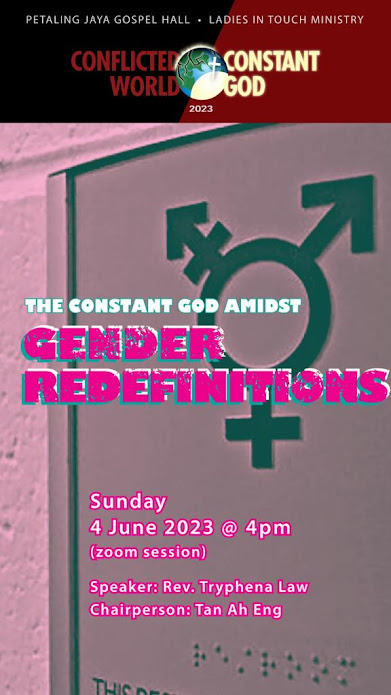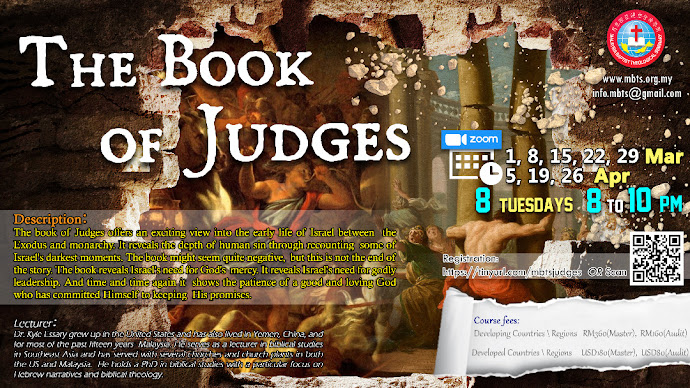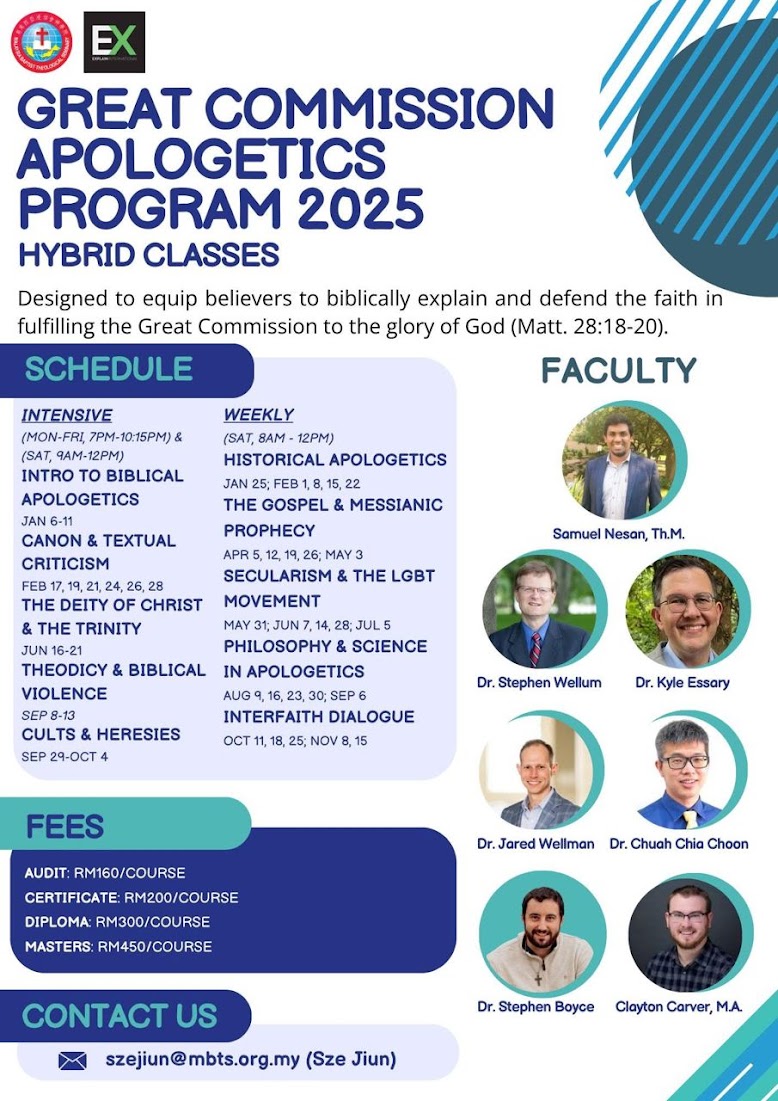EVERY COVENANT IS PART OF GOD'S DIVINE PLAN
(This assignment is a partial fulfilment for the module on Old Testament Survey. In all, there are three assignments that must be submitted)
In Genesis 12:1-3, we see God's promise was made with Abram, and those who bless Abram will be blessed, and those who curse Abram will be cursed. I will show you why it is Abraham and not Israel.
Later, in Genesis 17:1-2, God reiterated again His covenant with Abram who was re-named Abraham:Now the Lord said to Abram,“Go forth from your country,And from your relativesAnd from your father’s house,To the land which I will show you;2 And I will make you a great nation,And I will bless you,And make your name great;And so you shall be a blessing;3 And I will bless those who bless you,And the one who curses you I will curse.And in you all the families of the earth will be blessed.”
Now when Abram was ninety-nine years old, the LORD appeared to Abram and said to him,“I am God Almighty;Walk before Me, and be blameless.
In verse 6, He further explained to Abraham: “I will make you exceedingly fruitful, and I will make nations of you, and kings will come forth from you."“I will establish My covenant between Me and you, And I will multiply you exceedingly.”
In Hebrew, the word 'nations' or גוֹיִם is the same word that was translated in King James Version as 'Gentiles'. It simply means 'nations or ethnic people groups.' We see here that God's covenant to Abraham was already all-inclusive, not confined only to the descendants of Jacob (who was renamed Israel) who came after that.
Thankfully, we now have the hindsight when Paul explained to the Galatians:
This is consistent with the Hebrew word זַרְעֲךָ as used in Genesis 17, which is defined (parsed) as a 'common singular masculine construct' and is translated 'your seed'.Now the promises were spoken to Abraham and to his seed. He does not say, “And to seeds,” as referring to many, but rather to one, “And to your seed,” that is, Christ. What I am saying is this: the Law, which came four hundred and thirty years later, does not invalidate a covenant previously ratified by God, so as to nullify the promise. For if the inheritance is based on law, it is no longer based on a promise; but God has granted it to Abraham by means of a promise. (Galatians 3:16-18)
Therefore, those who are grafted into the True Vine, Jesus on account of their faith, are now co-heirs or partakers of the same promise given to Abraham together with the remnant of Israel who believe in the Messiah, Jesus Christ. Not every Israelite who is born an Israelite will enjoy this promise given to Abraham (read the entire chapter of Romans 11).
Therefore, the whole idea that we must bless Israel is a flawed teaching with an agenda of its own; we, Gentiles, who are co-heirs with the remnant of Israel, share the same inheritance through the promise given to Abraham on account of faith. Hence, God's promise is on account of grace through faith alone, not by works of the Torah.
As already explained in an earlier post that This is not the so-called 'replacement theology' but every covenant that God made has its role to play in the overall plan of God. Here is a theological assignment which deals with the different covenants:
Introduction
Brown–Driver–Briggs
defines the covenant (בְּרִית) in terms of an
alliance, treaty or pledge between men and between God and man. In the context of
the Old Testament, the covenant was “a divine constitution or ordinance with
signs or pledges” was given to individuals or an entire nation, in particular,
Israel. Instead of a series of separate covenants that “override” the older
covenants, the key covenants are to be seen as a progression in the fulfilment
of God’s promise, after He spoke to the serpent about the Seed (זרע) [1] from
Eve that was to come. Put simply, the covenants are a “consistent, unified
entity” showing HaShem’s lovingkindness (חֶסֶד) and His righteousness (צְדָקָה) despite of
Israel’s disobedience (Hill and Walton 2009, 25-6) .
Broadly speaking,
the major covenants in the Old Testament are (Hill and Walton 2009, 25) (Butler 2012, 78) :
(a)
The Noahic covenant (Genesis 8:16–9:17)
(b)
The Abrahamic Covenant (Genesis 12-50)
(c)
The Mosaic Covenant at Mount Sinai (Exodus – Deuteronomy)
(d)
The Davidic Covenant (1& 2 Samuel, 1 & 2 Kings)
(e) The New Covenant (Jeremiah 31:31-34; Ezekiel 36:26-27)
This progressive
revelation by God about the coming Messiah finally climaxed with the revelation
of the Λογος in
flesh (John 1), and with His blood, He sealed the New Covenant.
The Noahic
Covenant
Because of Noah’s
obedience in building the ark, after the world was destroyed by a massive
flood, the Noetic (or Noahic) Covenant speaks of a new beginning for mankind
and a reversal of creation, with Noah and his family providing a link with the
old creation order (Genesis 9:1–7) (Longman III and Dillard 2006, 58) .
Out of the three
sons of Noah, Shem was picked to receive the special blessings (Genesis 9:26). One
of Shem’s (שֵׁם which shares
the same word for ‘name’) descendants, Abraham was picked because of his
willingness to obey HaShem.
The
Abrahamic Covenant
Therefore, when
Abraham was promised the land of Canaan, it was a fulfilment of what was
already spoken regarding Shem (Genesis 9:26). To Abraham was promised that his
descendants would form an entire nation and they would occupy the land (Genesis
12:1–3). Abraham would serve as a channel of God’s blessing to the nations (Longman III and Dillard 2006, 59) , a foresight of what
would be the New Covenant which the Messiah would bring to Israel first, and
then to the nations.
To send the Seed,
God had to choose an individual, from whose lineage would come the Messiah. The
Abrahamic Covenant is therefore, seen as the mother of covenants, as the later
covenants were linked to this key covenant. Abram’s faith was expressed by his
response to the call to leave Haran after his father, Terah died (Genesis
12:4-5) and later with his willingness to sacrifice even his only son (Genesis
22). The use of the qal imperativeלֶךְ־ in Genesis 12:1 is more
than a prompting from God. It was a command, and Abram obeyed it; hence, it was
reckoned to him as righteousness (Galatians 3:6). The ram (אַיִל) which replaced Isaac
was a male sheep, and the Hebrew word gives the connotation of a ‘ruler’.[2]
Seen from this
perspective, we understand why God sent Jacob and his sons into Egypt;
otherwise, if they had remained in the land of Canaan, they would have died of
starvation (Longman III and Dillard 2006, 73) . When the time
arrived and the population of Israel was large enough to take over the land of
Canaan, God used Moses to bring them out of the Egypt and Joshua to lead them
into the Promised Land.
The
Mosaic Covenant
The Sinaitic
Covenant defined the larger scope and mission of Israel as a nation, an
attestation of God’s faithfulness towards His covenant to Abraham. HaShem
revealed Himself as the “supremely moral and ethical Being”, who made the
covenant with individual Israelites[3]
and this differentiated Israel from the rest of the nations (גוֹיִם) (Harrison 1971, 401) . It must be noted here that the covenant was specific in nature with only the nation of Israel before they entered the promised land. According to
Longman III and Dillard the Decalogue (Exodus 20:1-17) outlined the basic
principles, from which the laws in the Book of Covenant (Exodus 20:22–24:18)
were further elaborated based on the context at the time of the exodus. The
numerous sacrifices instituted in the Mosaic laws is best interpreted in terms
of the covenantal relationship between God and his people Israel[4] (Longman III and Dillard 2006, 65, 71, 85-87) .
The
Davidic Covenant
Part of the Davidic
Covenant was revealed to David himself (2 Samuel 7:8-17). It was further
elaborated by Isaiah who revealed that a new shoot would arise from David’s
lineage (Isaiah 11:1-10), and He would be called by wonderful Names (Isaiah 9:6). In
view that God Himself would establish a new heaven and a new earth (Isaiah 65:17-25; Revelations 21:1-4;22:1-6),
at the right time, the New Covenant (בְּרִית חֲדָשָׁה) (see Jeremiah
31:27-40; Ezekiel 36) was foretold. This would be followed by an outpouring of
the Spirit (Joel 2) (Carson 1994, 1) . This was also foretold by Jeremiah,
who also spoke about the land (Jeremiah 32:36-44) and the dynasty for King
David (Jeremiah 33:15-26).
The
Relationship with the New Testament
While the New Covenant
would be fulfilled only when Christ came (cf Hebrews 8-10), it does not
obliterate the old covenants, but it would be an “extension of them with new
features and dimensions added” (Hill and Walton 2009, 539-40) . The new covenant
was considered to be “a better covenant, which has been enacted on better
promises” (Hebrews 8:6) (Hill and Walton 2009, 743-4) . It was established
by the blood of Christ, the sacrificial Lamb of God (Matthew 26:26-29); and
with it, He set us free from the curse of the law (Romans 7). While the law
could not bring us into a relationship with God, it becomes our guide to
understand God’s will for our lives (Longman III and Dillard 2006, 75-6)
As highlighted by
John Goldingay[5],
throughout the Middle Ages, the Old Testament had been treated as a “way of
life” for the Israelites, “a witness to Christ” and a “salvation history.” Quoting
Paul, John Bright[6] added that the Old Testament must be elevated to the same status as
the New Testament (Romans 15:4; 1 Corinthians 10:11) (Hill and Walton 2009, 70) .
Old Testament
scholars agree that there are three different approaches that link both
Testaments (Hill and Walton 2009) :
(a)
Typology: Various
persons, feasts, and even the animals are “foreshadow” the corresponding New
Testament entities;
(b)
Allegory: Scriptures
including the Old Testament are to be taken symbolically or figuratively;
(c)
Didactic: moral values
imparted through the Old Testament laws that provide an upright lifestyle for
modern people
However, there is also a discontinuity between the Old and
the New Testaments, in the way food that were considered unclean (טָמֵא) under the Levitical
laws are now made clean (Acts 10:9-23) and the Levitical laws that guided the
office of the priests and high priest are no longer relevant after Christ
himself became the greater high priest, and offered himself as the atonement
sacrifice “once-for-all” (Hill and Walton 2009, 72 - 3) .
References
Brown, Francis, S. R. Driver, and Charles
A. Briggs. A Hebrew and English Lexicon of the Old Testamnet (BDB
Complete). Dania Beach, FL: Scribe Inc, n.d.
Butler, John G. Analytical Bible
Expositor. LBC Publications, 2012.
Carson, D. A. New Bible Commentary:
21st Century Edition. Accordance Electronic Edition. Edited by R. T
France, J. A. Motyer, and Gordon J. Wenham D. A Carson. Downers Grove, IL:
InterVarsity Press,, 1994.
Edersheim, Alfred. Bible History - Old
Testament. Vol. 1. 7 vols. William Branham Store, n.d.
Harrison, R.K. Introduction to the Old
Testament. Grand Rapids, MI: WilliamB. Eerdmans Publishing Company, 1971.
Hill, Andrew E., and John H. Walton. A
Survey of the Old Testament. 3rd Edition. Grand Rapids, MI: Zondervan,
2009.
Longman III, Trempler, and Raymond B.
Dillard. An Introduction to the Old Testament. Grand Rapids, MI:
Zondervan, 2006.
[1]
Genesis 3:15. God’s revelation
about the Seed of the woman was spoken to the serpent, not as a covenant to
Adam and Eve, as they had been disobedient towards God. This shows that God
only made covenant with people who believed in Him, and willing to obey Him.
[2] אַיִל“(Genesis
22:13 HMT-W4) can mean either a ram or a ruler. Kohlenberger III, John R. and
William D. Mounce. Kohlenberger/Mounce Concise Hebrew-Aramaic Dictionary of
the Old Testament. Accordance electronic ed., version 3.1. Altamonte
Springs: OakTree Software, 2012.
[3]
The use of the pronominal second person
masculine singular suffix לְךָ instead of the plural לְָכֵֶם
shows that the Law and
the Book of Covenant were given to each person individually, and they were to
be personally responsible for the way they live their lives.
[4]
For example, the peace
offering can also be rendered as “fellowship offering” because of the covenant
significance and the relationship between covenant partners; each party gets a
piece of the offering – the Lord, the priest and the worshippers (Lev. 3;
7:11–38)
[5]
John Goldingay: Approaches to Old Testament Interpretation, 2nd
edition (Toronto: Clements, 2002)
[6]
John Bright: The Authority of
the Old Testament (Reprint, Grand Rapids: Baker 1975)




Sounds very sound, dear Brother, well done.... 😊👍🙏
ReplyDelete